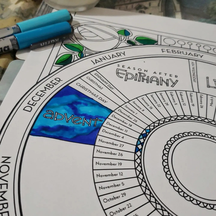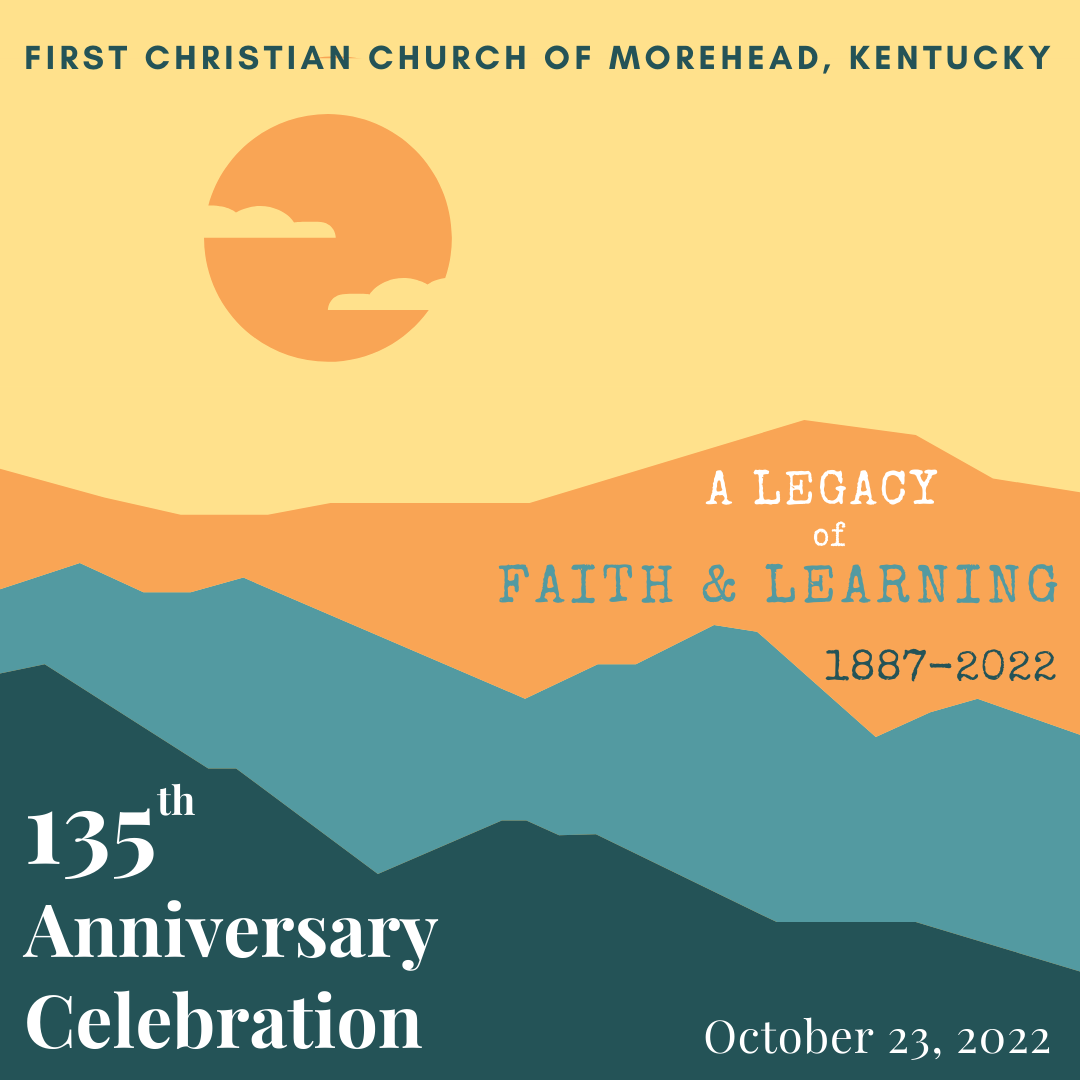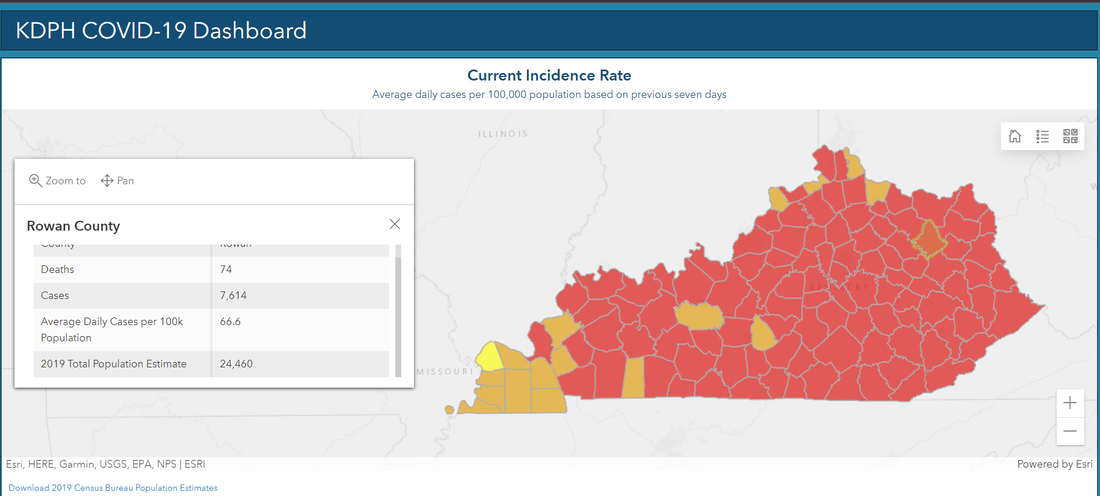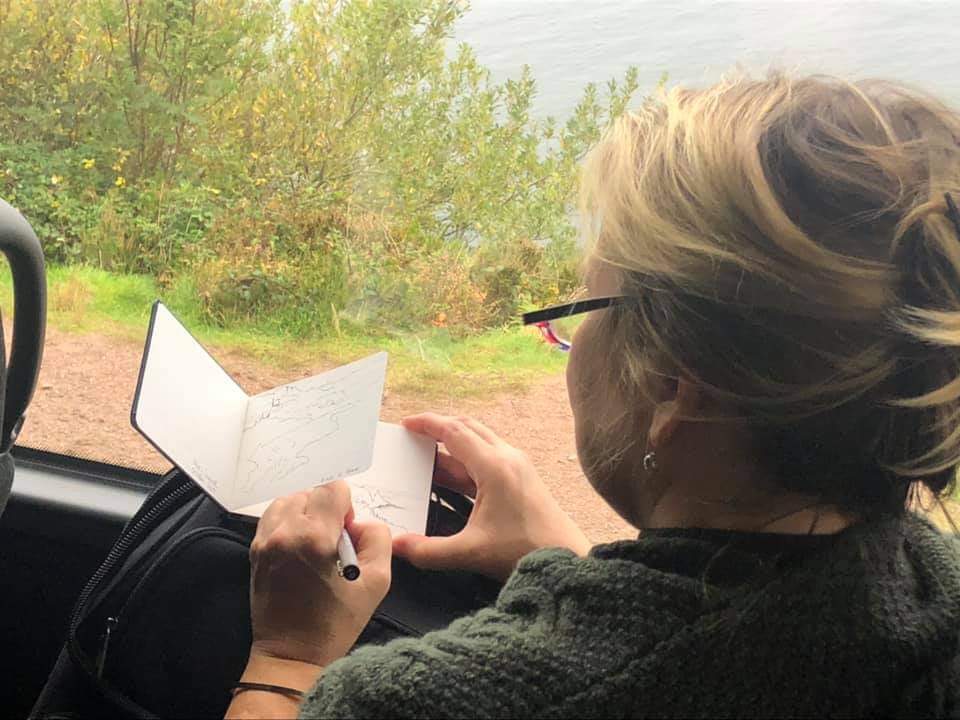 “LIKE A GREAT WATERWHEEL, THE LITURGICAL YEAR goes on relentlessly irrigating our souls, softening the ground of our hearts, nourishing the soil of our lives until the seed of the Word of God itself begins to grow in us, comes to fruit in us, ripens in us the spiritual journey of a lifetime.” —Joan Chittister The Liturgical Year: The Spiraling Adventure of the Spiritual Life As winter draws near, the nights grow longer and the hours of sunlight reach their shortest length of the year, we feel time in our bones. Often what we feel does not match the time on our clocks, when darkness falls so early. Surely it’s time to head to bed, we may think, only to check the clock and in shock discover it is only 6:30pm! (Or, maybe that’s just me!) We lean on our watches or phones to know the time, to help determine where we are in the movement of the day. The ancient Greeks had two words for time, chronos and kairos. Chronos is the kind of time we can quantify or measure, such as “The concert will last two hours” or “We averaged 65 mph on the way home.” Chronos is the time we see on our watches, the time we follow as we go to work or pick up the kids from school. We mark such time in minutes and hours, days, weeks, and years. The second word for time, kairos, concerns the meaningfulness of time, the potentiality of moments, expectancy of events. Kairos is the time of moments and breakthroughs, even interruptions. The church follows a calendar, with regular dates and festival times, which has points of connection with our chronos calendars. The new church year began on Sunday, November 27, with the first Sunday of Advent. There will be four Sundays of the season leading up to Christmas Day. Those dates are measurable, we can mark them on our personal calendars, keep track of those Sundays, note that Christmas Day is on a Sunday this year, too. Yet, the church’s liturgical calendar holds within it the possibilities of kairos time even as it marks the holy days of the Christian year. The church calendar invites us into an alternative plotline for our days, as it intentionally builds in times of preparation and repentance, with moments of remembrance and celebration. As Peter Leithart describes it, “the church calendar isn’t just a teaching device. It places us in the time of Jesus, and works the life and times of Jesus into us.” As we follow the rhythms of the liturgical year, we find a counterpoint to the secular calendar, a richer way of keeping time, walking alongside the stories of Jesus and diving deep into the ways of discipleship. This year we have liturgical calendar posters available for you. Take one home, put it up somewhere you can see it. Color the poster with your family. Explore the colors and the times of the church year and see how time changes and how keeping liturgical time may even change you.
0 Comments
The founding of Morehead Normal School in 1887 grew out of the Rowan County feud. The State applied militia force to settle the problem, the Baptists held evangelistic meetings, and the Disciples of Christ established a school and a church.
—Morris L. Norfleet, Morehead State University Founding Years It reveals much about the Disciples’ spirit that our response to the chaos from a multi-year violent feud which left more than 21 people dead, destroyed thousands of dollars of property, and terrorized local residents of Rowan County was to send missionaries to found a school and organize a local church. William T. Withers, a prominent Lexington horse breeder, ex-Confederate colonel, and a former slave owner, underwrote the missionary endeavor. A young college graduate Frank Button and his mother Phoebe Button accepted the call from the Kentucky Christian Missionary Convention to come to Morehead. Their work was to establish a school in Morehead and to provide pastoral leadership for the Christian congregation. The early days were difficult. Later Wither’s daughter, Ida W. Harrison related the story that upon his arrival, Button was visiting with a man in town, “and while they were talking, firing began on the street, and they had to take refuge behind an old stone chimney, until the fusillade was over.” The school attracted early opposition from the community, perhaps a distrust of outsiders played a role. In a letter to Button in October 1887, Withers saw the controversy as an opportunity, writing, “Am not surprised at the opposition to your school. It was only what might have been expected—this very opposition will no doubt result in bringing your school before the public & that’s what you want.” Education and faith were bound together in those early years. In the same October letter, Withers expresses his pleasure in hearing of the progress in forming a congregation in Morehead and informs Button that a “nice plated communion service” was being sent from the deacons of the Main Street Christian Church in Lexington for use by the new Morehead congregation. The church, alongside Baptist, Presbyterians, and Methodists soon held its gatherings in the newly erected Union Church building, constructed in 1888 on the site which our church facilities now stand. Disciples’ influence continued in Morehead as the Kentucky Christian Missionary Society oversaw the mission of the Normal School for thirteen years, after which control of the school was transferred to the national Christian Women’s Board of Missions. The work of the school fit in with the larger mission of the Women’s Board of Missions, whose work encompassed educational and missional projects internationally and in the United States. Roy Roberson, minister of FCC Morehead from 1970 to 1984, speaking at the centennial celebration of Morehead State University, reflected on what he called the religious spirit of the time as a reaction to the social upheavals of the era which led to Frank Button’s move to Morehead said, “...this was an explosion that led to a birth of new religious thinking that combine religion with reason, faith with purpose, intellect with a desire to build a better world, the ability to think and apply that thinking to a faith perspective that would do something in the lives of others.” As we celebrate our 135th year as a congregation, once again we find ourselves in a time of uncertainty and upheaval. Rather than be reactionary, may we instead be moved to commit ourselves to a missional vision which faces the future with hope and steely determination. Let this be a time of celebration, a moment to look back, and an opportunity for a reclaiming of our congregational heritage, this rich legacy of faith and learning with which we have been entrusted. Dear Friends,
The Worship Safely Committee (Return to in person worship committee) met on Sunday, July 31, for a discussion about our in-person practices. The meeting was prompted by the ever-increasing number of COVID cases in our community and the upcoming return of Morehead State University and Rowan County students to the classroom. As we have seen this past month with both our pastor and our music director going through COVID, the virus is not negligible and causes a serious lack of productivity through sickness and the need to quarantine even when it is not severe enough for a hospital stay. The cognitive dissonance many of us are experiencing due to COVID fatigue is understandable. The current CDC recommendations are: "If you are in an area with a high COVID-19 Community Level and are ages 2 or older, wear a well-fitting mask indoors in public." We know this is right and true, but most of us are not currently masking when we go out of our house. We're tired of it. Again, understandably so. However, if we, as a congregation, are going to follow the CDC guidelines, which we committed to doing last year when this committee was formed. And, if we are going to try our darndest to love our neighbors as ourselves and protect them to the best of our ability, then we need to follow these guidelines. Even if it means that we're the only place in Morehead that is doing so. Even if it means we're irritated by it. Even if it means that we're a little uncomfortable in a hot mask in the dog days of summer. The committee is asking that you please wear a mask at church when we are there as a group on Sundays for worship starting on August 7 and continuing as long as Rowan County is in the red and cases are trending upwards. Thank you for your patience and your understanding as we continue to navigate this annoying, dangerous, and stubborn virus. Sincerely, Genny Jenkins, chairperson Nancy Gowler, minister History is not a burden on the memory but an illumination of the soul.
-John Dalberg-Acton Dear Disciples, Much of pastoral ministry involves not speaking, but listening. A new minister slowly learns the stories of their congregation, both individual stories and the collective history of that faith community. Listening takes time and intentionality. As relationships deepen, the opportunities for sharing significant and personal experiences grows. A few months ago I shared some of what I’ve been learning about FCC Morehead, gleaned from conversations and practices. I listed the core values I’ve see in this faith community: communion, compassion, education, beauty, Creation, hospitality, community, history, and practicality. It’s an incomplete list, I know. Still I hope we can continue the conversation on these core values. I’d love to see where our lists overlap and what you know of this congregation that I have yet to learn. Let me say a bit more about one of those core values: history. I am mindful of the rich tradition of this congregation, under the direction of Frank C. Button its joint history with the founding of the Morehead Normal School, now Morehead State University. The very foundation of the church building rests upon the ground of its predecessor, the Union Church, which was built at the encouragement Col. John Hargis, founder of Morehead. Those two parts of our congregation’s history reveal the threads of ministry which continue to this day: our ongoing commitment to education and our dedication to ecumenism. It is, borrowing the words of Lord Acton, “an illumination of the soul” of this congregation. An exploration of one’s history also calls us to reflection, and at times repentance. Our ancestors, both personal and corporate, were human beings like us, sometimes inspiring, at other points most fallible. Engaging in history requires much of us, to be willing to face uncomfortable facts and to learn what those parts of our history reveal about ourselves. Our congregation’s history is no exception. The first financial supporter of the founding of the Normal School and of the Christian Church in Morehead was William Temple Withers, a former Confederate general and slaveowner, and also a prominent Lexington philanthropist and supporter within Christian Church circles. His name is included in one of our stained glass windows. History is complicated because human beings are complicated. We are beginning our worship services with an acknowledgement of the land, a public recognition of the stories of this place before us, of the people who lived on this land, loved it, cared for it, and who were forcibly displaced from their lands. That story is part of the history of the American church, too, and of ours as members of the Christian Church (Disciples of Christ). It’s a history which may make us uncomfortable, which challenges the narratives our ancestors told about themselves. Learning about the Doctrine of Discovery, the role that Christian churches played in the forced removal and the intentional erasure of indigenous culture and practices, enables us to tell our own stories with more honesty and humility. And it can change the ways in which we engage in ministry today, as we learn from the mistakes of the past and see how those historic decisions still affect the present day. Our histories are a mix of cherished stories and of regrets. I’m grateful that this congregation is committed to being faithful storytellers who both inspire and who don’t flinch at the painful chapters of the past. How do you understand the role of history in this congregation? In your own life? What lessons are you learning from the past? What stories do you want to know more about? Let’s keep this conversation going. Be well. Be kind. And always be the church where you are. Pastor Nancy The life so short, ……..the craft so long to learn.
—Geoffrey Chaucer What’s our Big Why? That’s the question which echoes through our conversations over Tim Soeren’s book, Everywhere You Look: Discovering the Church Where You Are. We dance around the question a bit, throwing out an answer here or there, although nothing seems to truly fit. Why are we here, First Christian Church of Morehead, Kentucky? What is the dream that God wants us to be a part of in this amazing part of Appalachia? Sometimes it helps to begin at the beginning, to retell the origin stories of this place and this community of faith. We know the Buttons, as recounted in the Rowan County News Centennial Celebration, The year 1887 was a memorable one for Morehead and Rowan County, for it marks the end of the county’s most crucial period and the beginning of its regeneration. Reverberations of the devastating Rowan County War were still echoing in these hills when a young minister and his mother, Frank and Phoebe Button, came as strangers to Morehead and laid the foundations of the Morehead Normal School. It was the arrival of the Buttons to Morehead which brought new purpose and much needed stability to the small church reeling from the violence. There are some intriguing themes I see in this origin story of ours and perhaps some points of connection with our own time:
My list is just a start. And you all know the story of this place and this congregation much better than I. I’d love to have conversations with folks reflecting on our beginnings. What values motivated the congregation in its early years? Is there a DNA to this congregation—a common thread connecting us to those beginnings? How have you experienced those core values lived out in the congregation? Are there other points of connection you see between the beginnings of this congregation back in the 1880’s and today? In what ways has the identity of the congregation evolved since its start? Let me know your thoughts. We as a congregation have been gifted with a rich tradition, and I believe the Spirit is nudging us into an even more rich future. With hope and anticipation, --Pastor Nancy Through the looking glass,
down the rabbit hole, into the wardrobe and out into the enchanted forest where animals talk and danger lurks and nothing works quite the way it did before, you have fallen into a new story. --Lynn Unger, “On the Other Side” As I write to you our governor has just announced new measures to help our state stop the rising number of COVID-19 cases. The trend lines in our state are disturbing. We may feel insulated here in Rowan County, but our numbers have been increasing in July, and we are only a short drive away from areas with rising rates. Our recent survey of the congregation included questions about COVID-19 and how it affects our worship practices. From the responses to the survey nearly 50% indicated they had an underlying risk which would prevent them from worshiping in-person in our sanctuary. Last week the elders discussed the pandemic, the results of our survey, the recommendations of our region and national Disciples leaders, and our own concerns. We talked about the struggles local businesses, the school district, and Morehead State University are having as they attempt to create safe environments for opening back up this fall. Through it all we remain committed to the ministries of our congregation and our call to be a voice for hope and inclusion in our community. The elders and I recommended to the board that we continue with on-line only worship through November 2020. As we enter the fall, we will have a better understanding of how the unique dynamics of our county are responding to the pandemic, and we will reassess our worship practices going forward into 2021. We recognize how disappointing this decision is. We are keenly aware of the longings many of us have to come back together in person, to worship side by side with one another, and to share in communion in one place. We do not come to this conclusion lightly, but through much prayer and reflection. It is our intention to focus on our current worship offerings and to provide the best possible worship experiences we can. Our worship will continue to be streamed live on Facebook every Sunday, and we will gather on Thursday night for Vespers services on Zoom. I continue to trust that this unsettled time can be a gift to the church. I know it’s frustrating; I know we are all exhausted. Nothing is easy as we are navigating these changes. Trust me, the learning curve for online technology can be daunting! Nonetheless, in many ways this crisis has forced the church to acknowledge we have been slow to recognize the massive cultural, technological, and generational changes that have already been shifting the world around us. A recent Barna survey on Christianity in the U.S. found only 25% of Americans are practicing Christians down from 45% in 2000 (State of the Church 2020, Barna Group, March 2020). That decline has occurred in every age demographic. What we’ve been doing hasn’t been effective, and simply starting back up things just like we were doing before the pandemic won’t change that. Why do I see this time as a gift? Because we follow a God who is constantly at work to bring life into the world, who is always innovating, never satisfied with the status quo. The prophet Isaiah gives voice to God, writing, Do not recall the first things, and what came before do not consider. I am about to do a new thing, now it will spring forth and you shall know it. (Isaiah 43:18-19) We Christians tend only to hear these words during the season of Advent, as we prepare for Christmas. When we read it through the lens of Advent, we know what the “new thing” is—Jesus. But God continues doing new things throughout history, and today is no exception. The hard part sometimes is tearing our eyes away from the past so that we are able to catch a glimpse of the Spirit at work in our world right now. The Scottish hymnwriter John Bell composes many of my favorite contemporary music for congregational worship. In one of his short songs for worship, rooted in words from 2 Corinthians and Revelation, he gives us these reassuring words of faith, "Behold, behold I make all things new, beginning with you and starting from today. Behold, behold I make all things new, my promise is true for I am Christ the way." We are a new creation in Christ, even amid a pandemic, perhaps especially now. We have fallen into a new story, a new story which God is writing with us. Now is not the time to despair. For this is the day we have been given. Let us rejoice and be glad in it! --Pastor Nancy |
AuthorA native of Illinois, Rev. Nancy Gowler lived for 26 years in the Pacific Northwest. She joined the ministry of First Christian Church in Morehead, KY, in July of 2020. Archives
January 2023
Categories
All
|




 RSS Feed
RSS Feed
